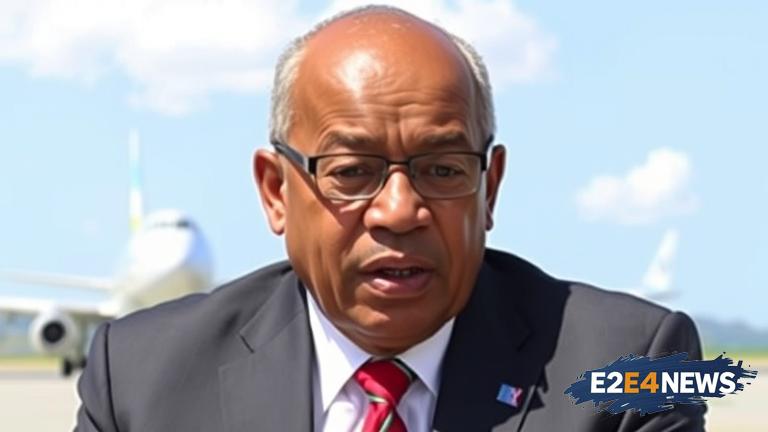The Seychelles Airport has been at the center of controversy in recent days, with President Ramkalawan making statements that have sparked a heated debate in the aviation industry. Alain St Ange, the former Minister of Tourism for Seychelles, has responded to the President’s statements, shedding light on the issues surrounding the airport. According to St Ange, the President’s statements were misleading and failed to address the real concerns facing the airport. The Seychelles Airport is a critical infrastructure for the country’s tourism industry, which is the main driver of the economy. However, the airport has been facing several challenges, including limited capacity, outdated facilities, and high operating costs. St Ange argued that the President’s statements did not provide a clear plan for addressing these challenges and instead focused on blaming previous administrations for the airport’s problems. The former Minister of Tourism emphasized the need for a comprehensive plan to upgrade the airport’s infrastructure, including the expansion of the terminal building, improvement of air traffic control systems, and enhancement of security measures. He also stressed the importance of increasing the airport’s capacity to accommodate more flights and passengers, which would help to boost the tourism industry. Furthermore, St Ange highlighted the need for better management and governance of the airport, including the appointment of a professional and experienced management team. He also called for greater transparency and accountability in the airport’s operations, including the publication of regular reports on the airport’s performance and financial management. The controversy surrounding the Seychelles Airport has sparked a wider debate about the country’s aviation industry and the need for reforms to improve its competitiveness and efficiency. The Seychelles government has been under pressure to address the challenges facing the airport, including the high cost of air travel, limited connectivity, and poor customer service. The airport’s problems have also been exacerbated by the COVID-19 pandemic, which has had a devastating impact on the tourism industry. In response to the crisis, the Seychelles government has announced plans to invest in the airport’s infrastructure, including the construction of a new terminal building and the upgrade of air traffic control systems. However, the plans have been criticized for being inadequate and failing to address the root causes of the airport’s problems. St Ange’s response to the President’s statements has added fuel to the debate, with many calling for a more comprehensive and inclusive approach to addressing the challenges facing the airport. The controversy has also highlighted the need for greater collaboration and cooperation between the government, private sector, and civil society to develop a sustainable and effective plan for the airport’s development. In conclusion, the Seychelles Airport controversy has sparked a heated debate about the country’s aviation industry and the need for reforms to improve its competitiveness and efficiency. The government, private sector, and civil society must work together to develop a comprehensive plan to address the challenges facing the airport and ensure its sustainable development. This includes investing in infrastructure, improving management and governance, and enhancing transparency and accountability. Only through a collaborative and inclusive approach can the Seychelles Airport be transformed into a world-class facility that supports the country’s economic development and tourism industry. The airport’s development is critical to the country’s economic growth and prosperity, and it is essential that all stakeholders work together to ensure its success. The Seychelles government must take a leadership role in developing a comprehensive plan for the airport’s development, including investing in infrastructure, improving management and governance, and enhancing transparency and accountability. The private sector must also play a critical role in supporting the airport’s development, including investing in facilities and services, and providing expertise and technical assistance. Civil society must also be involved in the planning and decision-making process, including providing feedback and suggestions on the airport’s development. By working together, the Seychelles can develop a world-class airport that supports the country’s economic development and tourism industry, and provides a positive experience for passengers and visitors.
